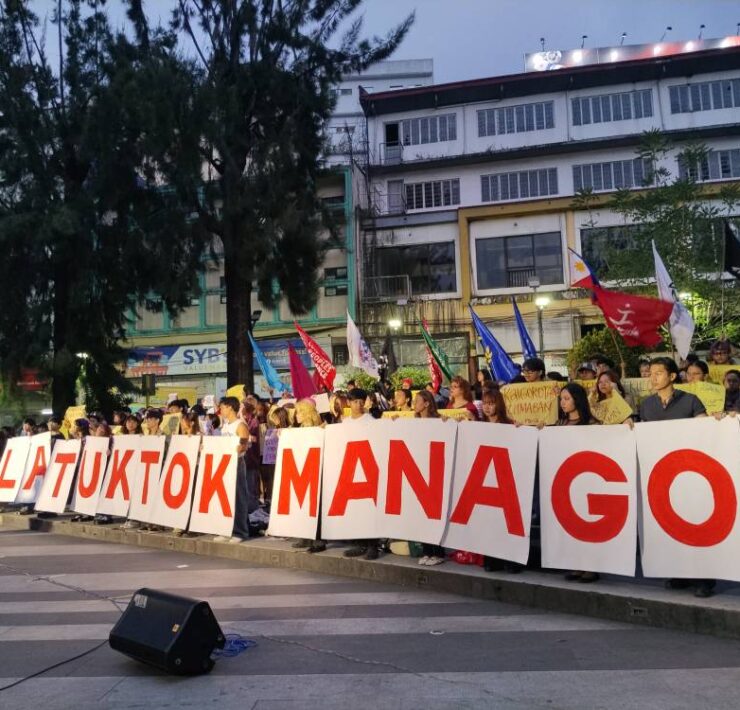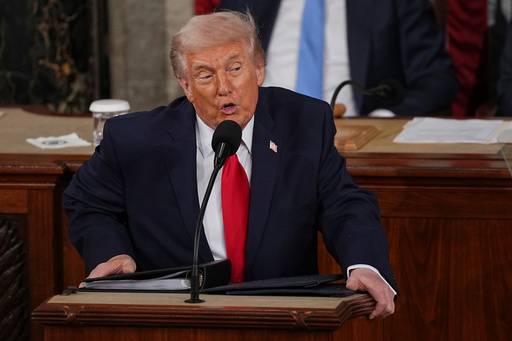Senate resolution seeks backers to push VP trial

Senate Deputy Minority Leader Risa Hontiveros said she would block any “premature” move to dismiss the trial of Vice President Sara Duterte and would push for a Senate resolution urging the Supreme Court to allow the senators to perform their duty as members of the impeachment court.
“What would we dismiss if there’s still no piece of evidence or any warm-bodied witness that we, senator judges, have heard?” Hontiveros said during the Kapihan sa Senado forum on Thursday.
“If that happens, we would debate on the issue. I am ready, we in the minority are ready to fight for our arguments, our opinions. If we come to a vote, we will explain each of our votes,” she added.
On Aug. 6, the senators would discuss and decide on the Supreme Court decision declaring Duterte’s impeachment as unconstitutional as it was barred by the one-year rule against more than one impeachment complaint against the same official and for violating the right to due process.
4 signatories so far
Senate President Francis “Chiz” Escudero said this would give the senator-judges enough time to go through the 97-page decision.
Hontiveros said she and three other senators—Francis “Kiko” Pangilinan, Paolo Benigno “Bam” Aquino IV and Vicente “Tito” Sotto III—have signed a resolution which cites advice and guidelines on how the Senate should move forward from former Supreme Court justices who had questioned the high court’s July 25 ruling.
The senator said that she always had a high respect for the court and expected that it would also show mutual respect for other branches of government in performing their tasks.
Several lawmakers, legal experts, constitutionalists and former members of the Supreme Court have criticized the court’s decision siding in favor of two petitions, including one from Duterte herself, questioning the constitutionality of the articles of impeachment. Some described the decision as similar to changing the rules in the middle of a game.
Finding a balance
Some have emphatically cited the constitutional provision giving the responsibility to impeach an official to the House of Representatives and the sole responsibility of the Senate, as the impeachment court, to acquit or convict.
“My disposition is to find a balance or harmonization between respecting the Supreme Court, upholding our responsibilities in the Senate, and fulfilling our obligations to our fellow Filipinos who expect us to also uphold the accountability of public officials,” Hontiveros said when asked whether she would comply with the court’s decision.
She said she signed the proposed resolution last Monday on the opening day of the 20th Congress. The plan is to have it signed, hopefully by the majority of the 24 senators, she added.
Pangilinan said he had presented the draft resolution to a caucus of the majority last Monday and some told him that they would review it.
Sought to comment, Escudero told reporters in a message that he hadn’t seen the draft resolution, but will await its filing, “if at all, for the body’s consideration.”
Despite the court’s ruling, Hontiveros is optimistic.
“I’m always hopeful, especially in these important processes being delegated to the Senate,” she said.
Azcuna opinion
In the draft resolution, the Senate expressed “its profound sense that the Supreme Court consider the application of the fairness principle and the doctrine of operative facts in the context of the impeachment proceedings, to ensure that actions taken in reliance on previously established legal definitions are recognized as valid, and that any new interpretations are applied prospectively.”
The resolution largely cited the opinion of retired Supreme Court Justice Adolfo Azcuna, one of the framers of the 1987 Constitution, who said the ruling was “grossly unfair” in how it had knocked down the articles of impeachment signed by 215 House members.
He said lawmakers followed the Constitution and that this was upheld by a previous court decision which said that an impeachment complaint was only deemed “initiated” when it had been included in the order of business of the House and then referred to a committee.
Steps not taken
Azcuna said these two steps were not taken with respect to the three previous impeachment complaints and therefore these could not be considered as having been initiated. That gave way to the filing of the fourth complaint which became the articles of impeachment.
The resolution backed Azcuna who urged the high court to issue a “supplemental resolution” and apply the doctrine of operative facts which states that “the actions taken and things done in reliance on a former and then prevailing definition (or in the absence of one) should be treated as valid.”
“It is the Senate’s position that a reconsideration by the Supreme Court of its ruling would reconcile the constitutional provisions on the Supreme Court’s power of judicial review, the House of Representatives’ power to initiate impeachment complaints, and the Senate’s power to try and decide impeachment cases,” the draft resolution said.
It added that this would ensure that “all powers are given proper effect, consistent with the entrenched principle of constitutional construction” that was established in a previous case which stated that “one constitutional provision should not negate the other.”
Earlier contentions
The Senate and the Supreme Court had locked horns in a previous impeachment trial.
On Feb. 9, 2012, the court issued a temporary restraining order (TRO) stopping the Senate impeachment court from compelling Philippine Savings Bank officials from disclosing information on then Chief Justice Renato Corona’s foreign currency deposits during his impeachment trial.
Pangilinan said then that the TRO “ties our hands.”
“Constitutionally, our hands should not be tied. How can we try this case if the Supreme Court ties our hands, and renders some of our interlocutory orders void?” he said.
Then Sen. Antonio Trillanes IV also said that “if they can stop us in small matters, how much more in bigger decisions?”
On Feb. 13, after a caucus, the Senate court, however, voted 13–10 to comply with the TRO, but only with regard to foreign currency, not Philippine peso, deposits. —WITH A REPORT FROM INQUIRER RESEARCH





















